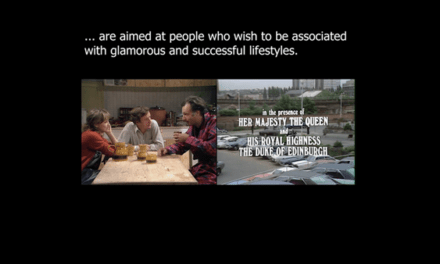Cathy Johnson’s “Working ourselves to death” will go down in CST-history as the blog which nearly brought the system down, so heartily did it resonate with so many of us! In this piece, I want to continue the conversation about overwork and attachment and ask some, potentially uncomfortable, questions about the ways in which self-exploitation becomes discursive justification for exploiting others.
To do this, I want to start – perhaps counter-intuitively – where Cathy leaves off, with this quotation from Audre Lorde: “Caring for myself is not self-indulgence, it is self-preservation, and that is an act of political warfare”.

It may seem disingenuous for a white, tenured, middle-class British academic to appropriate Lorde’s words to discuss working conditions in a profession so saturated in privilege, even if that privilege is giving way to precarity, intensification of workload and surveillance, as Rosalind Gill, amongst others, has argued. On the other hand, there is the danger – as Lynne Segal noted at the MeCCSA conference where I first tried to work through some of these thoughts-[i] of Lorde’s words being appropriated to a neo-liberal, individualist model of academic labour, in which looking after ourselves is an individual responsibility – something else we’re not quite doing well enough – and so becomes a source of personal guilt, abnegating the need for structural analysis. My intent here is certainly not to let our institutions (or governments) off the hook, but rather to acknowledge the ways in which by not taking care of ourselves we not only do damage to our own health and wellbeing, but can also (at times unwittingly) facilitate the exploitation of others. And so my rather old-fashioned argument is that this is a crucial moment for academics to put care for the self back on the agenda, not only for our own wellbeing, but also as a means of facilitating the kinds of change many of us want to see in our institutions.
Now, I will freely admit to being part of the problem I am trying to critique. I am, as many of us are, prone to the odd work-whinge. I can usually find a receptive audience among colleagues and friends, and we sympathise over late night writing sessions, marking mountains, endless meetings, overflowing inboxes, shifting goalposts, deadlines missed. Of course, this can have an important supportive function. But, as Cathy notes, it is also fuelled by – and in turn perpetuates – an expectation that we are all over-worked. There can be a competitive busy-ness about it which is anything but healthy: I see your marking mountain and raise you a book-due-by-Monday.
Without denying the very real powerless many of us feel, competitive busy-ness can become an end in itself and there is a perverse investment in denying the agency we do have. This point was beautifully made in a discussion at the Feminist & Women’s Studies Association conference in 2013. Following a paper by Maria Do Mar Pereria about the work experiences of feminist academics – for whom, activism becomes another thing we’re not doing “well enough” – women were sharing experiences of being overworked, overstretched, overlooked, exhausted. But then a member of the audience noted that, for those of us in tenured positions and any degree of seniority, we are our universities.
This is a powerful reminder that there is feminism to be done not only in our teaching and research, but in the discursive framing and organisation of our working practices and relationships. Of course, feminists (& others) have been, and continue to be, involved in this kind of work at all levels. As someone relatively newly promoted to a position where I can – maybe – begin to do something about this, I want to be part of the solution, not the problem. But how do I – do we – do this without “fix university” becoming another yet another piece of unfinished work gnawing at our conscience?
This is where I have found Audre Lorde’s words useful: if we want to be in a position to change anything, we have to be able to take care of ourselves in the process.
After my MeCCSA talk, one senior colleague “confessed” (and these conversations do often have something of the confessional) that she had been guilty of using her own – difficult – experiences as a PhD student as a yardstick against which to measure students’ complaints. Their accounts of overwork, stress, exhaustion rang hollow when compared to the juggling feats she had managed, so their entreaties left her relatively unmoved. This must resonate powerfully for new PhD graduates in the current climate, juggling often appallingly-paid temporary teaching “opportunities” in the hope of securing that increasingly allusive permanent post. This too has become normalised – it’s what you have to do to secure an academic job. Too few of us who do have those secure posts, it seems, are prepared to stick our necks out on this one: after all, if we don’t get the teaching cover, how on earth will we write that grant application or finish that article? Our own busy-ness legitimates our carelessness towards colleagues.
But this process is circular, not linear. So as junior colleagues do more and more for less and less – often, though by no means exclusively, at a life stage when they have no external responsibilities – those of us in more senior posts come under additional pressure (from ourselves as well as from promotions boards and in appraisal systems) to prove our worth. Add to this mix the external caring and financial obligations that typically (though, again, by no means exclusively) become more intense mid-career – something which is itself profoundly gendered – and the internal administrative responsibilities which tend to accumulate from mid-career, and it’s a real pressure cooker. And so the cycle continues.
Precisely because of the discourses of attachment that Cathy outlined, how we think about our career choices can be bound up with how we think about ourselves. In a culture in which overwork and self-exploitation is the norm, those who make different choices can be an uncomfortable reminder of our own complicity: that we could, perhaps, do things differently. Some of these choices are more loaded than others. I’ve heard from colleagues returning from maternity leave or after bereavement, for example, that others with ostensibly similar experiences have been the least supportive and the most demanding. I did it – and in worse/ more challenging circumstances, with a heavier workload – so why can’t you? There’s a danger of this becoming the academic equivalent of Monty Python’s “Four Yorkshiremen” sketch.
In this race to the bottom (to get to the top), as well as the dangerous discourses of attachment highlighted by Cathy, I think we also need to be wary of framing our careers in relation to “luck”. When trying to reflect upon my own career for the MeCCSA plenary, I repeatedly wanted to talk about luck: how lucky I was to have been a recipient of free higher education, to have a job I love, to have been in the right place at the right time to take advantage of particular opportunities, to have had fantastic feminist mentors, to have a fabulously supportive partner and family. There is an element of embarrassment and defensiveness about this – an acknowledgement that, yes, others work hard(er), produce more, in more difficult circumstances, and are unrewarded, or at least not as well rewarded as I have been. But doesn’t this also perpetuate the problem? After all, luck, and the lack of luck, is something we can’t control.
Whilst acknowledging the serendipity or chance which often lie at the heart of academic careers there are things here that shouldn’t be down to luck and which can also go some way towards ameliorating structural privilege (on the grounds of gender, race and class, for instance). These include free access to higher education, good mentoring, support for returning to work after extended leave, fair conditions of employment, transparency of recruitment and promotion opportunities. As Cathy notes (following Doris Eikhof) those of us involved in planning teaching loads, in recruitment and promotions boards, have a role to play in ensuring that expectations are realistic, that we don’t automatically award overwork – making academia even more inaccessible to those who can’t, or won’t, play that game.
But for this to have meaning it can’t only be other-directed. I am now in a position where I mentor colleagues and am frequently encouraging people to do less: echoing the best advice I was ever given, by my wonderful colleague and mentor Christine Geraghty: and which I did – for a too-short, but very productive, period – manage to live by. No-one listens to me. But why should they? They hear my stories about workload in the corridor. They receive emails from me late at night. They hear me saying “yes” to an impossible demand and a ridiculous timescale. My “do less” must seem like I am trying to pull the ladder up after me, rather than encourage my colleagues’ success.
By looking after myself might I not also become a better mentor, more capable of affecting the kind of change I want to see to make my university a safer, saner place to work? This is the politics of self-care which I find most enabling: not self-care in the service of a neo-liberal university, but self-care as a building block for change. It’s starting with something I do have power over (myself and the way I talk about my job) and trying to think about how this might be a first step towards creating meaningful change at a broader level.
Of course, this is only part of the picture, and lobbying for institutional and structural change remains crucial. But as a first step, let’s stop sharing stories of overwork as an end in themselves. Let’s try to challenge this “norm” by encouraging ourselves and others to do less and refusing to engage in the competitive busy-ness and aggressive parading of self-achievement which characterises too many academic exchanges. This doesn’t mean we should be silent about overwork, but when we share our stories we should do so as a means of building change or asking for support, not as a kind of badge of honour.
That MeCCSA and CST are providing spaces for the airing of these issues is an important move. We don’t yet have all the answers, but, if we find time out of our (busy) lives to keep this conversation going, maybe we’ll get there.
Karen Boyle is Professor of Feminist Media Studies, Co-Director of the Centre for Gender & Feminist Studies and Director of the MLitt/MSc in Gender Studies (Applied) at the University of Stirling She is the author of Media & Violence: Gendering the Debate (Sage, 2005), editor of Everyday Pornography(Routledge, 2010) and author of a range of articles dealing with issues of gender, genre and violence. She is currently working on a range of things, but most important – and most difficult – among them is achieving a better work-life balance and encouraging others to do the same.
[i] I had the privilege of being part of the opening plenary of the MeCCSA 2015 “Generations” conference. The plenary – entitled My Brilliant Career, – was the brainchild of conference organisers Karen Ross, Rosie White and James Leggott, to whom I extend my warm thanks for the invitation. Thanks too to my co-panelists, Bob Franklin and Ruth Sanz-Sabido, with whom I shall be revisiting these issues in a more extended form in a future edition of MeCCSA’s Three-D.





